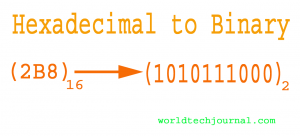One of the inventions of the twenty-first century that has received the greatest excitement is blockchain technology. How to become a blockchain developer? what blockchain is? In this post I will discuss about this.
Blockchains, which were first created to support Bitcoin, now power dozens more cryptocurrencies, and developers are seeking to incorporate the technology into industries including medical, the arts, and banking.
It might be useful to comprehend how blockchain works, why it has value, and how it differs from other internet technologies in order to comprehend the rising interest.
What is Blockchain?
A blockchain is a digital record of transactions protected against hacking and modification by a network of computers.
With the use of technology, people may transact with one another securely without the need for a middleman like a bank, government, or other third parties.
Encryption is used to interconnect the developing collection of data called blocks. Mentoring computer systems use time stamps to verify every transaction, before being added to an increasing data chain. The data is unchangeable after it has been recorded.
Blockchain technology has gained popularity with the rising usage of Bitcoin, Ethereum, and other cryptocurrencies, but it also has potential uses in the legal sector, real estate transactions, the medical field, and any other area that requires the authorization and documentation of a sequence of activities or transactions.
Explaining blockchain technology
Here is an explanation of how blockchain, also known as distributed ledger technology, works using the Bitcoin system as an example:
- A network of strong computers known as nodes receives and transmits transactions for buying and selling bitcoin.
- Using computer algorithms, this network of thousands of nodes competes to confirm the transaction. Bitcoin mining is what this is called. The miner who is the first to successfully finish a new block is rewarded with Bitcoin for their efforts. Newly created Bitcoin and network fees—which are charged to the buyer and seller—are used to pay for these benefits. The amount of transactions will determine whether the fees increase or decrease.
- The sale is recorded as part of a block on the distributed ledger once the purchase has been cryptographically verified. The transaction must then be confirmed by the majority of the network.
- The block is permanently linked to all previous blocks of bitcoin exchanges, to use a cryptographic thumbprint defined as a hash, and the sale is processed.
In a dissertation from 1982 that discussed “the architecture of a distributed computer system that may be formed, maintained, and trusted by mutually suspicious organizations,” the idea of blockchain technology initially surfaced in scholarly works.
How to become a Blockchain developer?
In the present state of the IT industry, blockchain is undoubtedly one of the top rising technological fields. According to statistics, the worldwide market for blockchain technology is expected to increase by over $20 billion by 2025.
Blockchain, on the other hand, is considerably bigger than just Bitcoin and is transforming how the digital world operates by making it safer and more effective.
There are several IT behemoths, like Samsung, IBM, Capgemini, and others, that provide enticing employment prospects for blockchain professionals. If you want to have a meaningful and fruitful career, you may want to think about becoming a blockchain developer.
Before going any further, let’s look at the question, “Who is a Blockchain Developer?”
The people who research blockchains are known as blockchain developers. Blockchain developers are in charge of performing specific tasks including developing blockchain protocols and building smart contracts, among others.
Blockchain technology, on the other hand, is concerned with a distributed database that keeps track of each and every transaction that has been carried out throughout the global network of computer systems.
Additionally, blockchain developers may be broadly divided into two categories: core blockchain developers and blockchain software developers.
Core Blockchain Developer
- Create the consensus and Blockchain protocols.
- Creates and keeps track of the network architecture
- Implement numerous blockchain functionalities & features, etc.
Blockchain Software Developer
- creates APIs for integrating blockchain
- Create the backend and frontend for decentralized applications.
- Develop & Implement Smart Contracts, etc.
You must be aware of the Blockchain developer job profile at this point.
Now the issue is: How can a blockchain developer have a fruitful and successful career? In the same vein, let’s go through the whole plan you must adhere to in order to become a blockchain developer.
Begin with your studies
The first thing we advise to become a blockchain developer is that you have a background in computer science or information technology.
You may choose to graduate from a certain stream with a Bachelor’s or Master’s degree. Having a certain academic background is not necessary to become a blockchain developer, but it will allow you to grasp the foundations and will provide you a solid basis for learning blockchain technology.
To get greater exposure to a specific technology, you may choose from a number of suggested training programs in addition to degree programs.
These educational requirements are also criteria for employment at practically every IT giant, thus having them will open up exciting job prospects for you.
Master the necessary tech skills
You must master a number of technical requirements before entering the blockchain development domain to become a blockchain developer. Let’s look at these technological abilities:
- You must master programming ideas, particularly those related to OOPs, in order to work as a blockchain developer. You may easily design apps for blockchain and other activities with a solid understanding of programming languages. Programming languages like Java, C++, Python, etc. are options.
- Data Structures: You want to have a solid understanding of knowledge structure ideas additionally to programming languages. Blockchain developers employ data structures to make the effective and immutable system. you want to have a solid grasp of a range of knowledge structures, including linked lists, binary trees, heaps, hashes, graphs, and lots of more.
- Networking and databases: Furthermore, so as to start your career as a blockchain developer, you want to have a basic understanding of computer networking and database principles. you will get a more robust understanding of distributed systems’ workings in addition as other key ideas for blockchain development.
- Cryptography is one of the key technical abilities needed to become a blockchain developer. to ascertain the groundwork for blockchain development, you need to get acquainted with a spread of cryptographic techniques, including digital signatures, hash functions, the RSA algorithm, and lots of more.
Along with these technical skills, you should also be familiar with the web designing and development process since it might be a crucial part of blockchain development and help you, among other things, create Dapps and manage APIs.
Recognize the basics of Blockchain
Once you’ve got mastered the required technical abilities, you need to now comprehend the fundamentals of blockchain technology to become a recognized blockchain developer.
You need to be informed on blockchain technology, including how it functions and what uses it’s. you want to be well-versed within the principles of Blockchain architecture and comprehend ideas like consensus, hash functions, distributed ledger technology, etc.
Additionally, you must familiarize yourself with Bitcoin and other important ideas like decentralization, public and personal methods, and plenty of more. to urge an intensive grasp of Blockchain technology, you will make a choice from a range of online and offline resources, including tutorials, journals, training sessions, and training materials.
Recognize cryptoeconomics
Let’s now discuss cryptocurrencyomics, which may be a fundamental component of blockchain development.
Combining the concepts “cryptography” with “economics” ends up in the name “cryptonomics.” it’s focused on the method of comprehending the economic theories and operating systems that underlie cryptocurrencies.
To complete the Cryptonomics program, you want to find out about variety of important topics, including transaction fees, mining, the lifetime of a Bitcoin transaction, and plenty of more.
Although cryptocurrency only makes up a tiny low portion of the full blockchain technology, you want to comprehend its workings in great depth to grasp the foundations of blockchain.
Find out about Ethereum and DApps
Here we’ve got Ethereum, one of the key components of Blockchain development to become a blockchain developer.
An open-source decentralized blockchain network called Ethereum is employed to run smart protocols and to make distributed applications (DApps) and smart contracts without the conventional problems like downtime, fraud, third-party intervention, and other things like that.
Decentralized applications, on the opposite hand, are the software programs created on blockchain platforms like Ethereum et al.. additionally, there are many other well-known platforms for blockchain, like EOS, Hyperledger, etc., but it’s advised that you just begin your trip with Ethereum attributable to its many functions.
Gain knowledge of Solidity and smart contracts
Let’s explore the planet of blockchain in additional depth and study other essential ideas like Smart Contracts, Solidity, etc.
This transaction event is free from outside interference since smart contracts are focused on the protocols or instructions used for automation. Smart contracts’ three essential elements are deterministic, terminable, and isolated.
Furthermore, JavaScript has had a big effect on Solidity, a high-level, statically typed language wont to create smart contracts. Vyper, Simplicity, and variety of additional specialized languages are available for creating smart contracts.
Gain practical experience
You now need to get some actual experience in the blockchain development industry if you want to de good as a blockchain developer.
It’ll enable you to place all of your academic knowledge into practice, increasing your exposure to and competence with the relevant technology and associated tools and platforms.
You will like better to create your own Dapps, build smart contracts, etc. Additionally, you’ll apply for a spread of internship or training programs, where you may find all the mandatory tools and conditions.
Additionally, you will join variety of advised discussion forums like Reddit Forums, Stack Exchange, etc. to interact with Blockchain experts and find some insightful knowledge.
You may select from variety of pertinent certificates, just like the IBM Blockchain Certification and also the Certified Blockchain Solution Architect (CBSA), after reviewing the aforementioned techniques and skills.
These certificates won’t only assist you in analyzing and validating your knowledge and skills, but they will also open up variety of wonderful employment chances within the relevant field.
Additionally, the subsequent list of highly suggested publications might help make your path toward becoming a blockchain developer less difficult and worthwhile:
- Elad Elrom’s The Blockchain Developer
- The Book of Satoshi, by Phil Champagne
- Don and Alex Tapscott’s Blockchain Revolution
- Antony Lewis’s the fundamentals of Bitcoins and Blockchains
So, if you would like to become a decent Blockchain developer, you want to follow this whole route.
The road to become a blockchain developer isn’t simple, and it’ll need lots of commitment, diligence, and consistency on your part.
However, given the explosive expansion of blockchain technology, the utilization prospects for blockchain developers seem to be quite attractive and promising.
What are you expecting right now? make preparations to enter the blockchain development industry and reach your professional objectives.
Advantages and Disadvantages of blockchain
The following are some advantages and drawbacks of how cryptocurrency blockchain technology functions:
Advantage of blockchain
Decentralization
While the Federal Reserve prints the U.S. dollar, no government body is answerable of or issues Bitcoin or other cryptocurrency.
Additionally, this means that no government or organization will longer be ready to decide the longer term of a public blockchain.
The absence of middlemen lowers costs since there are not any third-party transaction fees. Time efficiency is another advantage of how blockchain operates; unlike banks and other middlemen, the blockchain is accessible for business around-the-clock, daily of the year.
Combined with confidentiality
On computers spread across the network, the Bitcoin blockchain keeps a record of each transaction.
The ownership of every wallet related to these public addresses is anonymous and not documented, but the address and transaction history of those wallets, which store the bitcoin, make transactions totally visible.
Precision and safety
There is a lesser chance of mistake since there’s minimal human involvement throughout the transaction. it’s vanishingly difficult to falsify or modify information since each transaction must be verified and logged by a majority of the network nodes.
Additionally, this stops someone from employing a Bitcoin quite once.
Applications for both public and personal blockchains
Efficiency gains brought forth by blockchain technology might go much beyond virtual currency. as example, anybody may join the general public blockchain network where Bitcoin is found.
However, a range of business applications is also developed on private blockchain networks, where businesses can manage who joins:
- Blockchain supply chain: Organizations are already offering private network solutions that use blockchain technology to more precisely trace product supply chains, including IBM Blockchain. as an example, businesses may utilize the technology to swiftly determine where delivered and sold recalled food goods.
- Electronic medical records: per Deloitte Consulting, a national blockchain network “may increase efficiency and enable improved health outcomes for patients.”
- Smart contracts: Using blockchain technology, contract terms are also updated or altered automatically in response to the fulfillment of a specified set of criteria.
- Elections conducted digitally: Some developers are developing blockchain technology to be used in elections.
- Property sales: Supporters claim that blockchain technology could also be used for a range of asset sales, including those involving property, automobiles, and investment portfolios.
Disadvantages of blockchain
Crypto appeals to criminals
A number of recent technologies have their early users among criminal organizations. thanks to the secrecy they supply, they utilize cryptocurrencies like bitcoin for both payment and to kill bitcoin holders.
Customers of Silk Road, a black market online marketplace for unlawful goods and services that the FBI close up in 2013, offered Bitcoin as an example. Recently, ransomware attacked Colonial Pipeline, and to unlock its computer systems, the company paid $4.4 million in bitcoin.
While this has been happening, the amount of investment frauds using Bitcoin has increased dramatically.
According to the Federal Trade Commission, between October 2020 and March 2021, programs promising quick gains cost almost 7,000 people $80 million, a nearly 1,000% rise in reported losses year over year.
Cryptocurrencies on the blockchain are quite unstable
Is blockchain a wise investment, ponder some. That relies on your investing goals and risk tolerance.
In 2021, cryptocurrency’s appeal skyrocketed, with Bitcoin reaching record damage of about $65,000. However, the price of Bitcoin and a number of other cryptocurrencies had decreased by quite half by the spring of 2022.
The usage of cryptocurrencies remains uncommon
A large number of exchanges, brokerages, and payment platforms presently offer bitcoin for sale, and many companies, like PayPal and Microsoft, accept it as payment.
However, using blockchain currencies like bitcoin to form purchases continues to be uncommon.
Additionally, additionally to any state and native taxes already paid on the great or service, users who sell bitcoin for purchases on payment platforms like PayPal must pay capital gains taxes on the bitcoin sold.
Mining bitcoins requires electricity
A network of fast computers that utilize plenty of energy is employed within the bitcoin mining process.
In keeping with the University of Cambridge Power Consumption Index, if the bitcoin system were a nation, it might be the 34th largest electricity user, prior to the Philippines and behind European country.
Elon Musk, the CEO of Tesla, said in May 2021 that the automaker would stop accepting bitcoin unless that cryptocurrency found a method to reduce its carbon impact. Other blockchains’ creators have proposed less energy-intensive alternatives.
Blockchain in bitcoin moves slowly
Approximately seven new transactions could also be added to the bitcoin blockchain per second. Visa, the market leader in credit cards, claims that it can process 24,000 transactions per second.
The bitcoin system now faces a scalability problem as a result. On this issue, several blockchain-based cryptocurrencies are working.
The much-anticipated Ethereum 2.0 system upgrade is expected to increase the current transaction rate of 30 transactions per second to 10,000 transactions per second.
Future of Blockchain technology
There are dozens other cryptocurrencies that are supported blockchain technology, whether or not the Bitcoin system is its most well-known use.
While it’s yet unclear if bitcoin are going to be able to replace other kinds of conventional payment systems, blockchain technology applications are expanding quickly, and supporters believe that they might bring about substantial improvements in a wide range of industries.
However, I guess that you are now clear about how to become a blockchain developer as well as some general queries about blockchain.
Now, its time to share your thoughts and experience about this trending technology and how to become a blockchain developer.
Recommended for you:
What is data science? All you need to know about data science
Top 50 computer science jobs in the world | CSE student job career
What is quantum computing? Advantages and disadvantages
What is Edge Computing? Advantages and disadvantages of Edge Computing




